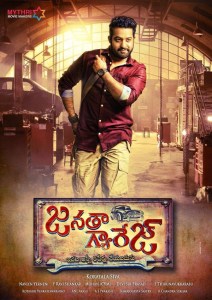
Often sequels disappoint when compared to the original, but Drishyam 2 is one of the rare exceptions to the rule. In another departure (as sequels can have only a tenuous connection to the original), the film continues the events depicted in Drishyam, where Georgekutty was under suspicion for the disappearance of the local IGA’s son. Each piece of the puzzle is meticulously crafted to seamlessly follow on a few years from where we left the family and the police investigation. The twists and turns are excellent, and the story is put together with a good blend of emotion and character development underlying the plot. There is a core of logic that ensures everything that happens is indeed possible, even if not probable, and it does all make sense. This is smart filmmaking and with such an excellent cast reprising their roles, Drishyam 2 is a sequel not to miss.
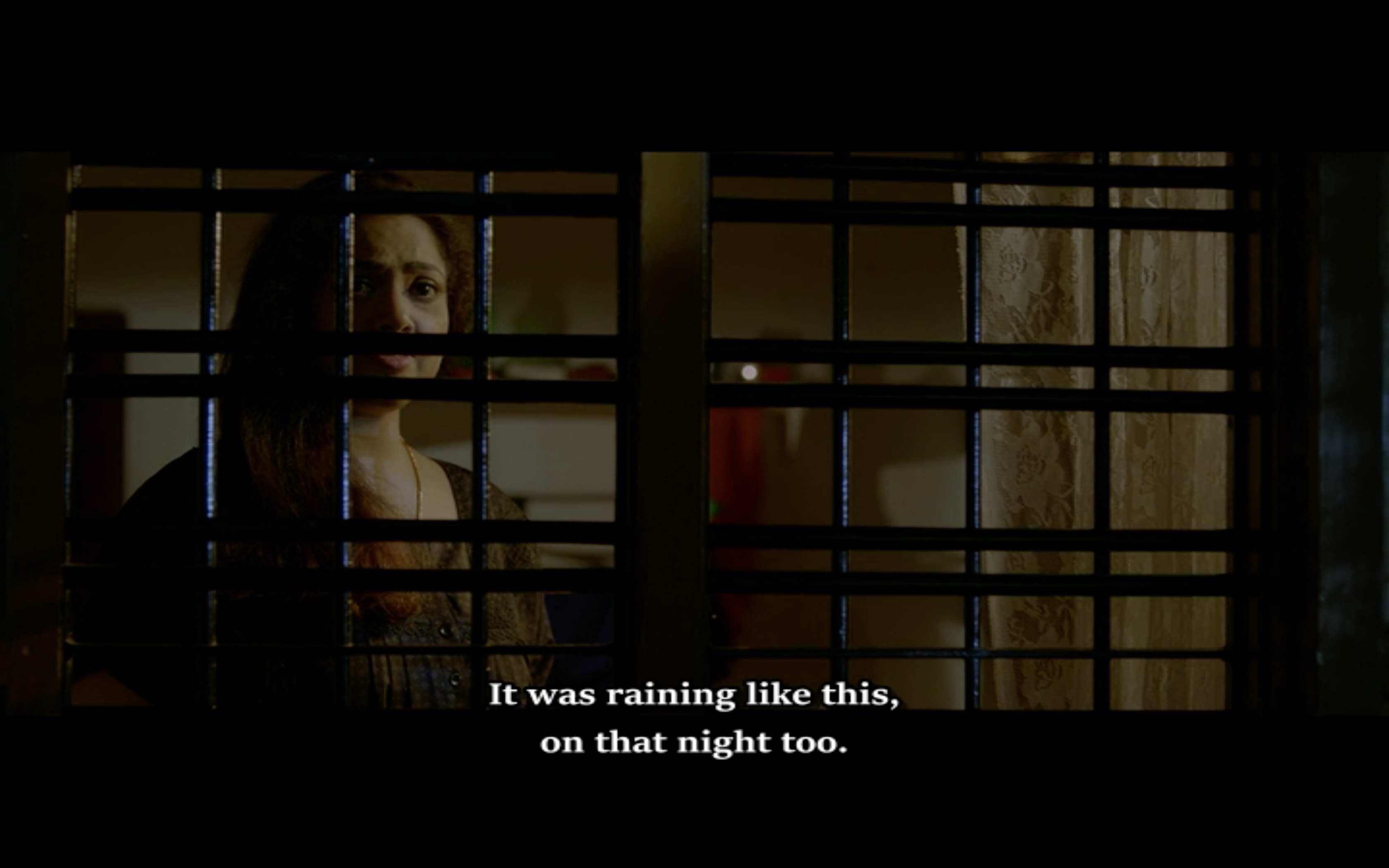

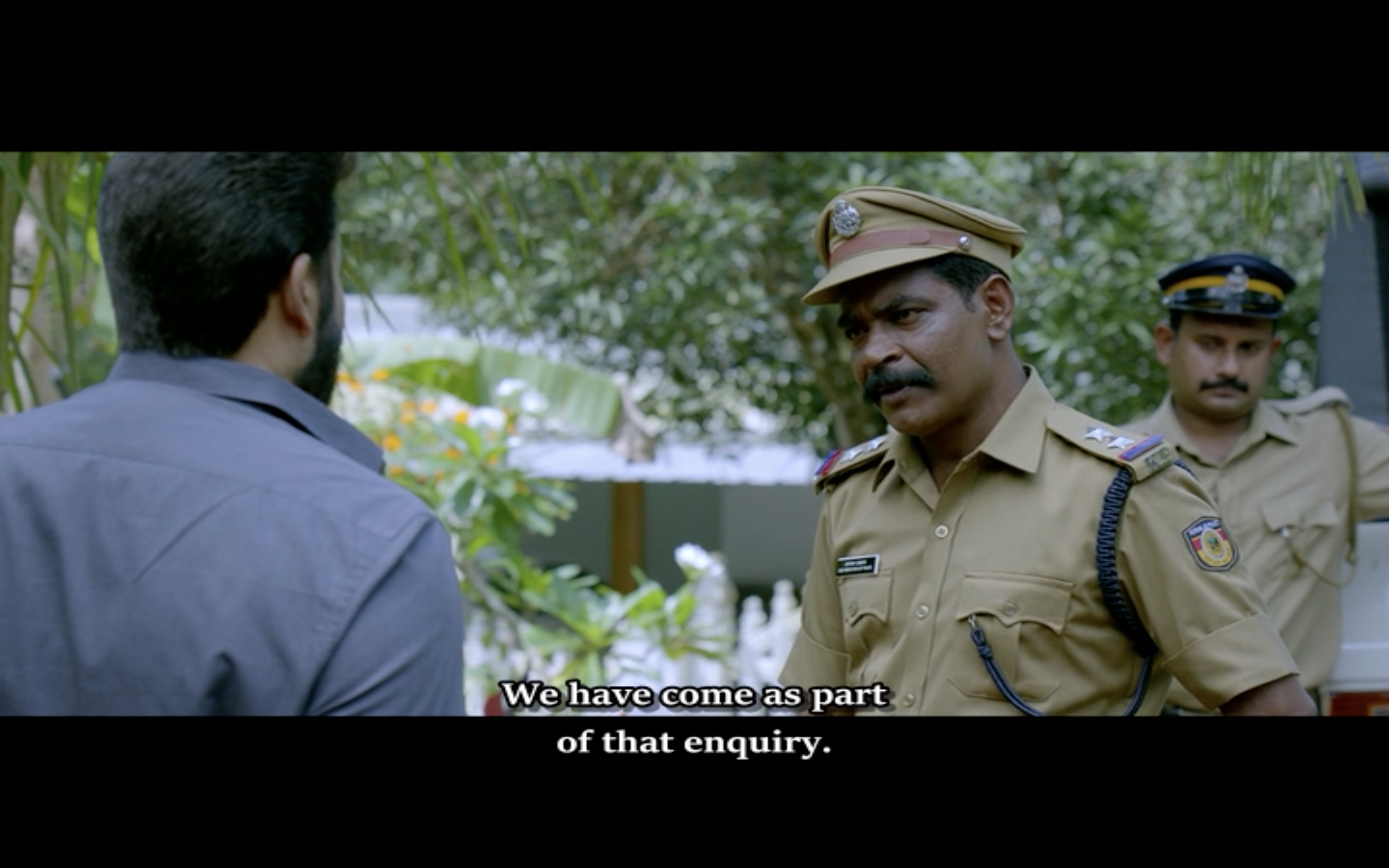
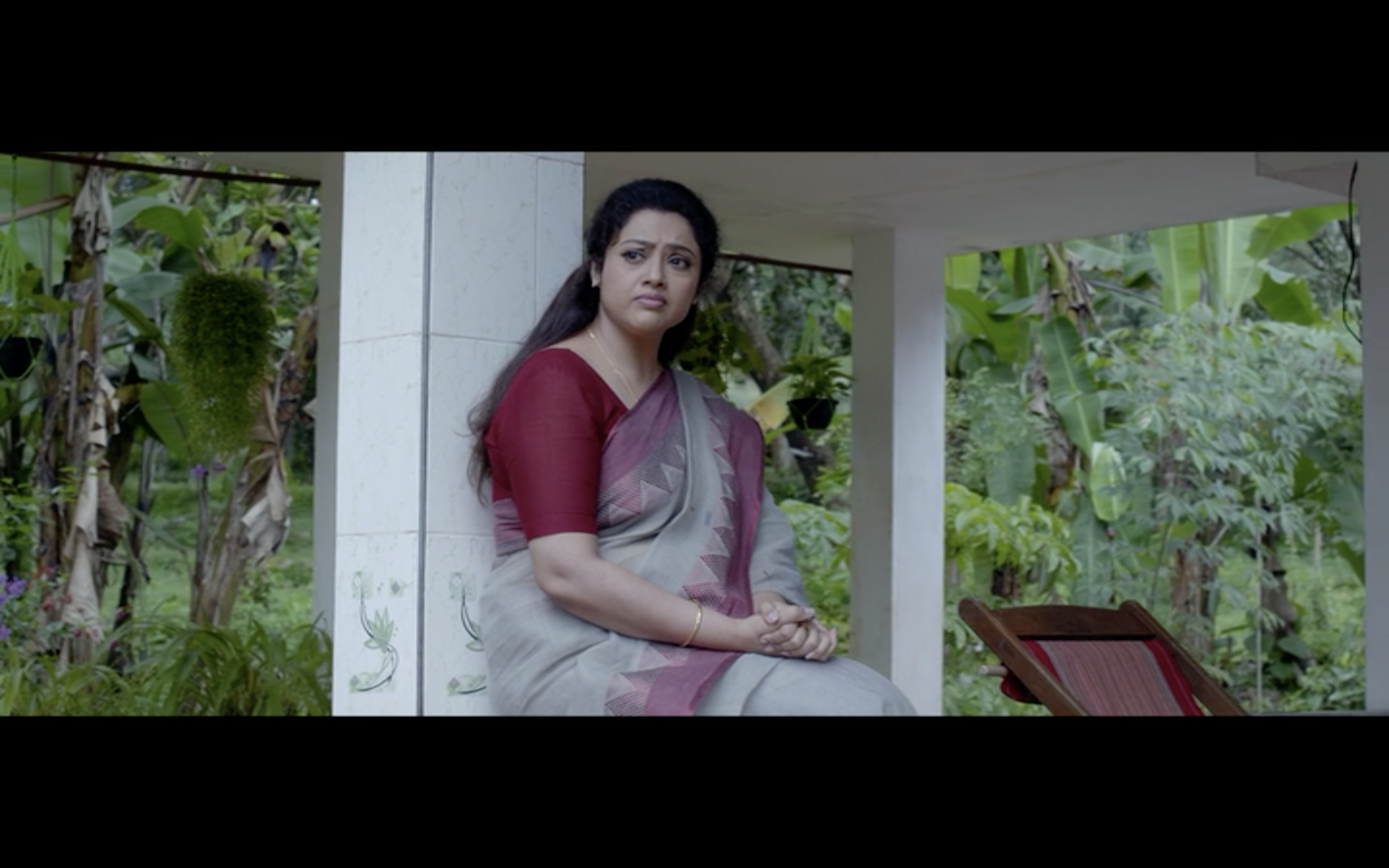
The past 6 years have not been kind to Georgekutty (Mohanlal) and his wife Rani (Meena) despite growing his business and opening a movie theatre. While initially the townspeople were supportive, there is developing resentment of Georgekutty’s financial success. Rani has been affected by the police investigation and is constantly fearful, asking a neighbour to stay with her when Georgekutty is away from home overnight and always seeming to watch over her shoulder. Their eldest daughter Anju (Ansiba Hassan) suffers from PTSD and epilepsy after the events of Drishyam, although younger daughter Anu (Esther Anil) is happily getting on with her life. Georgekutty has worked to develop his business while also working on writing and producing a film with screenwriter Vinayachandran (Saikumar). But despite his outward success, the police haven’t given up on the case of the missing, presumed murdered Varun, and IGP Thomas Bastin (Murali Gopy) is continuing investigations quietly in the background. This leaves Georgekutty anxious and vigilant even though he tries to carry on life as usual.

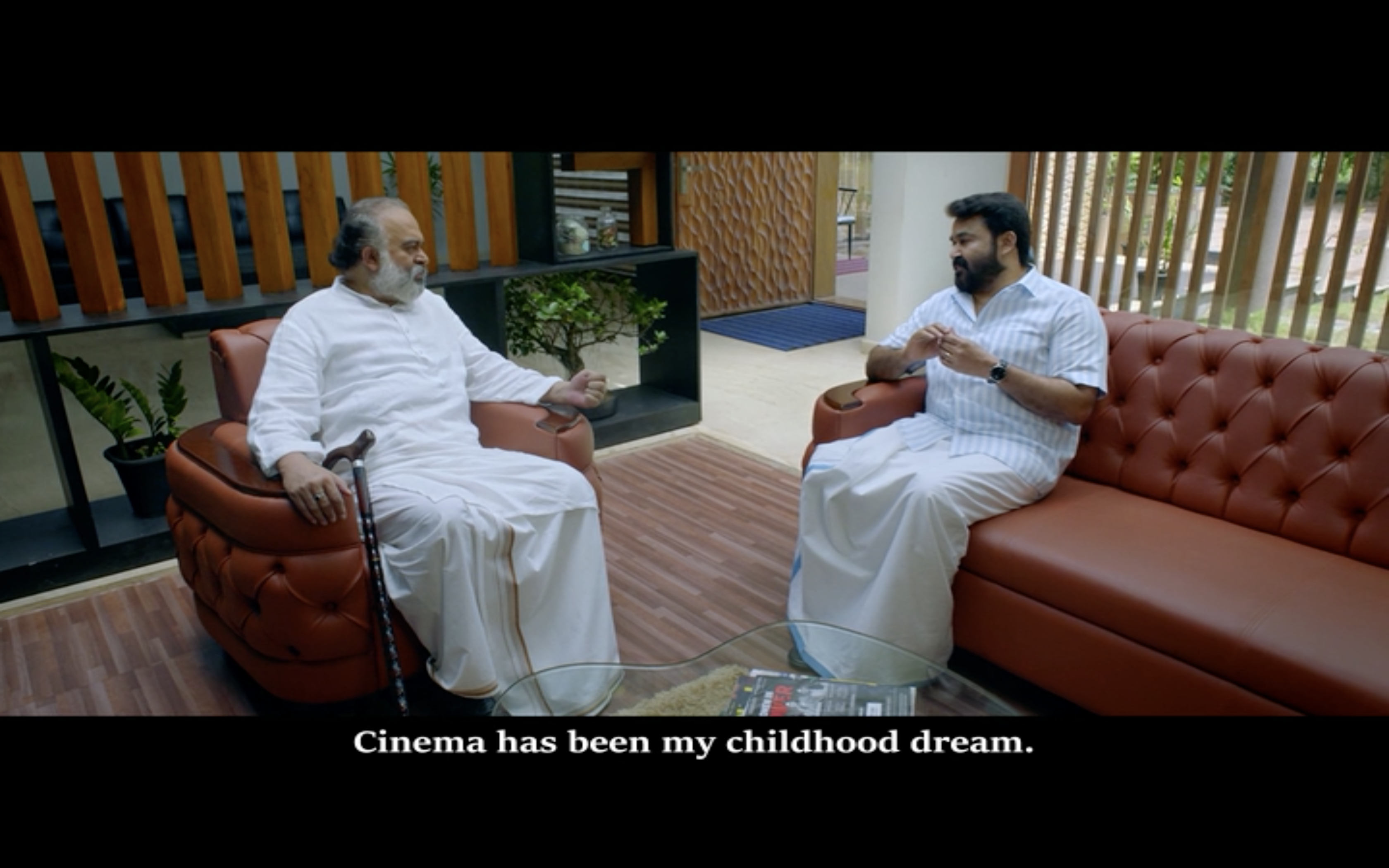
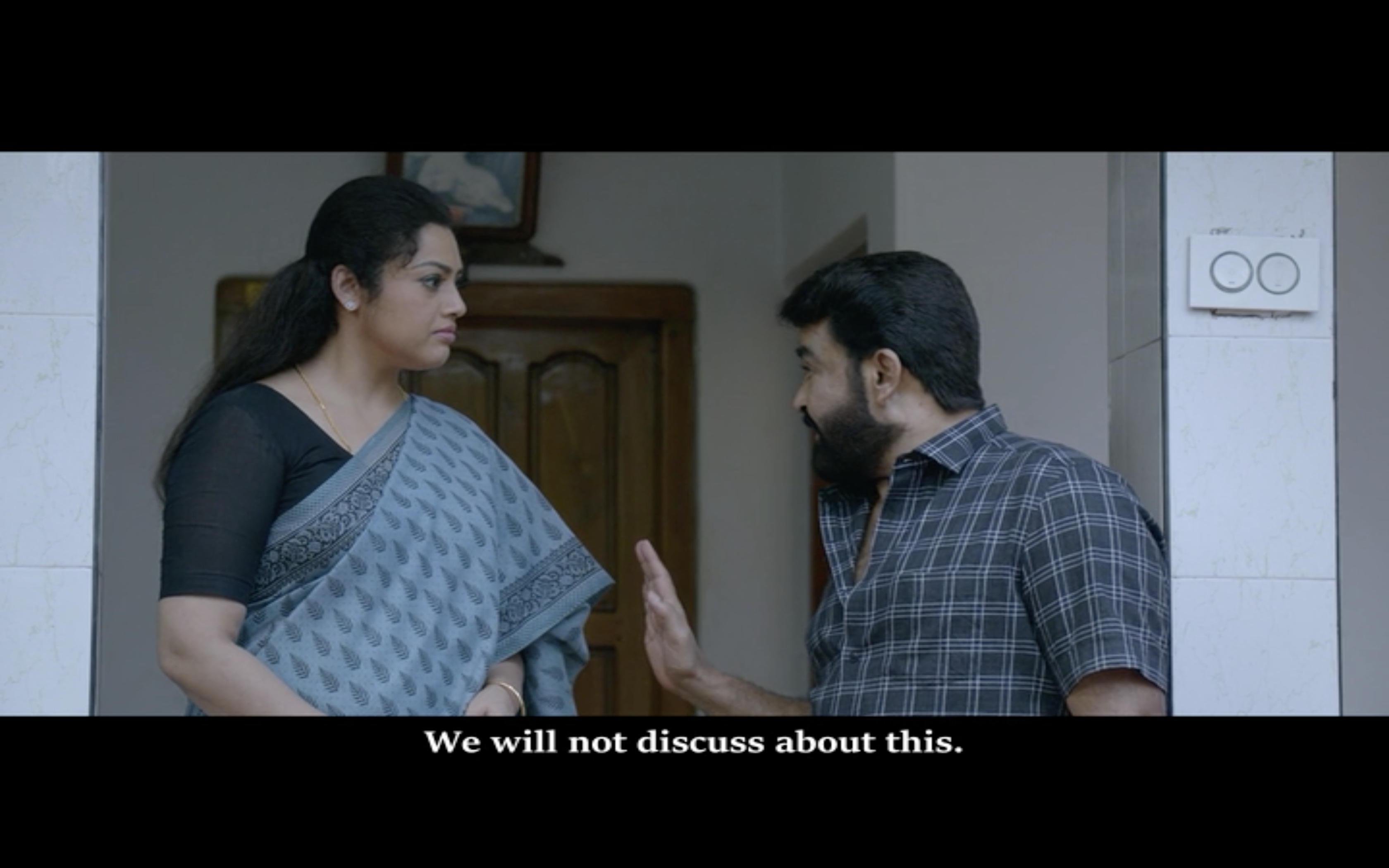
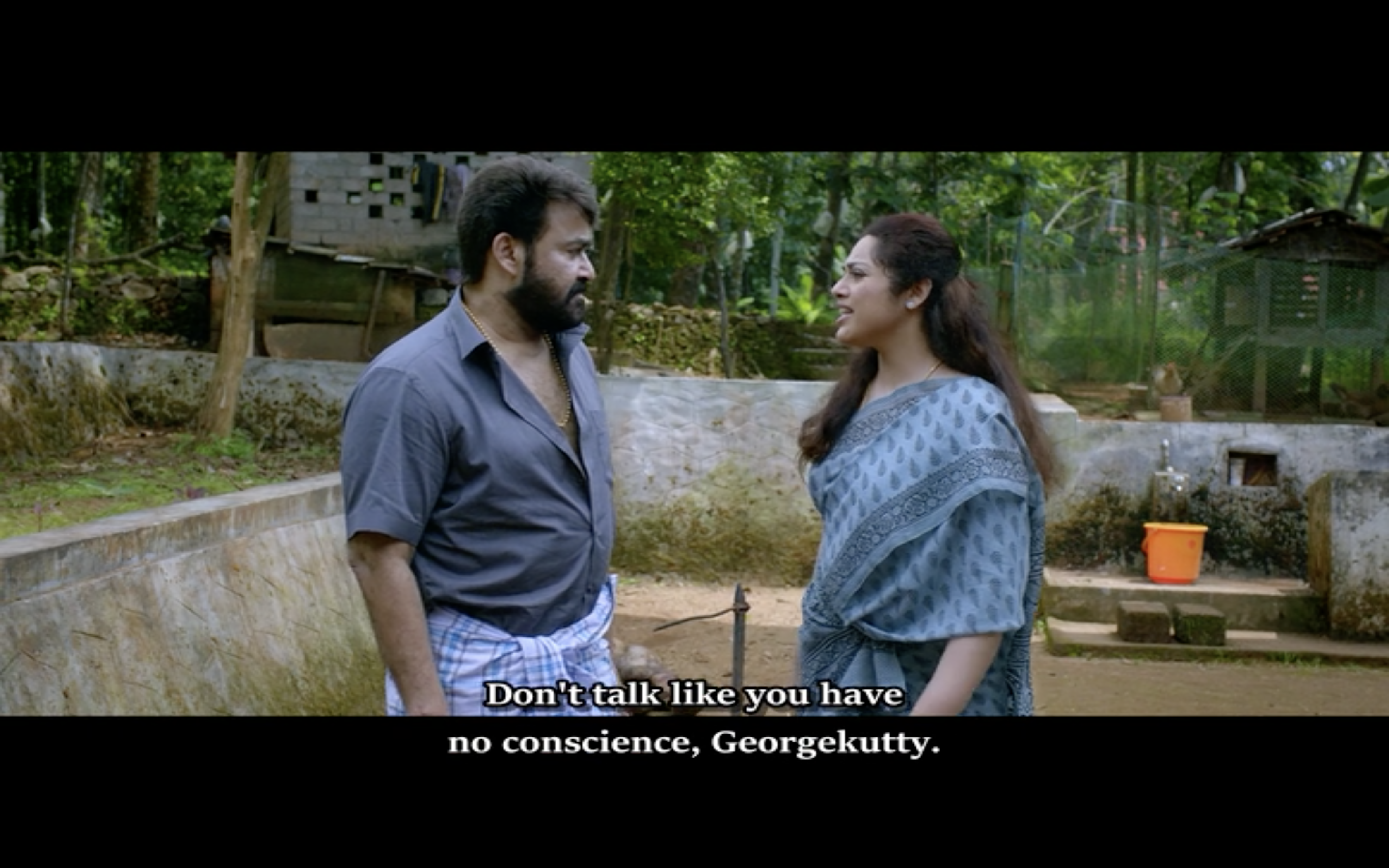
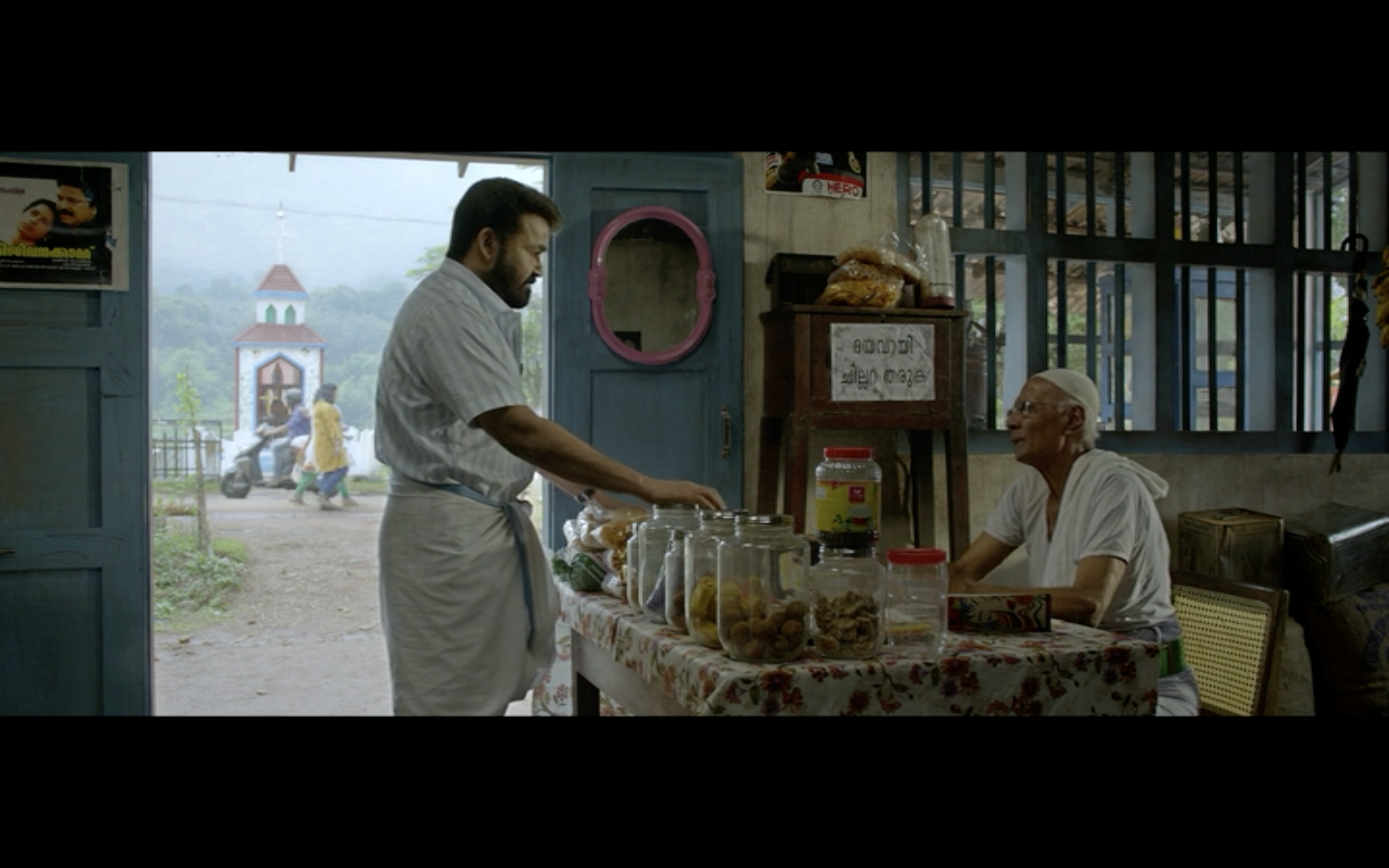

The film plays heavily on emotions when Varun’s father Prabhakar (Siddique) approaches Georgekutty and pleads for the body of his son, so that they can bury him and have closure. Naturally Georgekutty denies that he knows where Varun’s body can be found, but the scene is so well written that it seems possible that Georgekutty will crack and reveal what happened on the night Varun disappeared. Also notable is the subterfuge around the family where neighbours aren’t quite what they appear and even Anu’s college friends are secretly reporting back to police. Suddenly Georgekutty’s paranoia about discussing anything to do with the case is shown to be a wise move as a possible witness comes forward and the police pull the family back in for questioning.
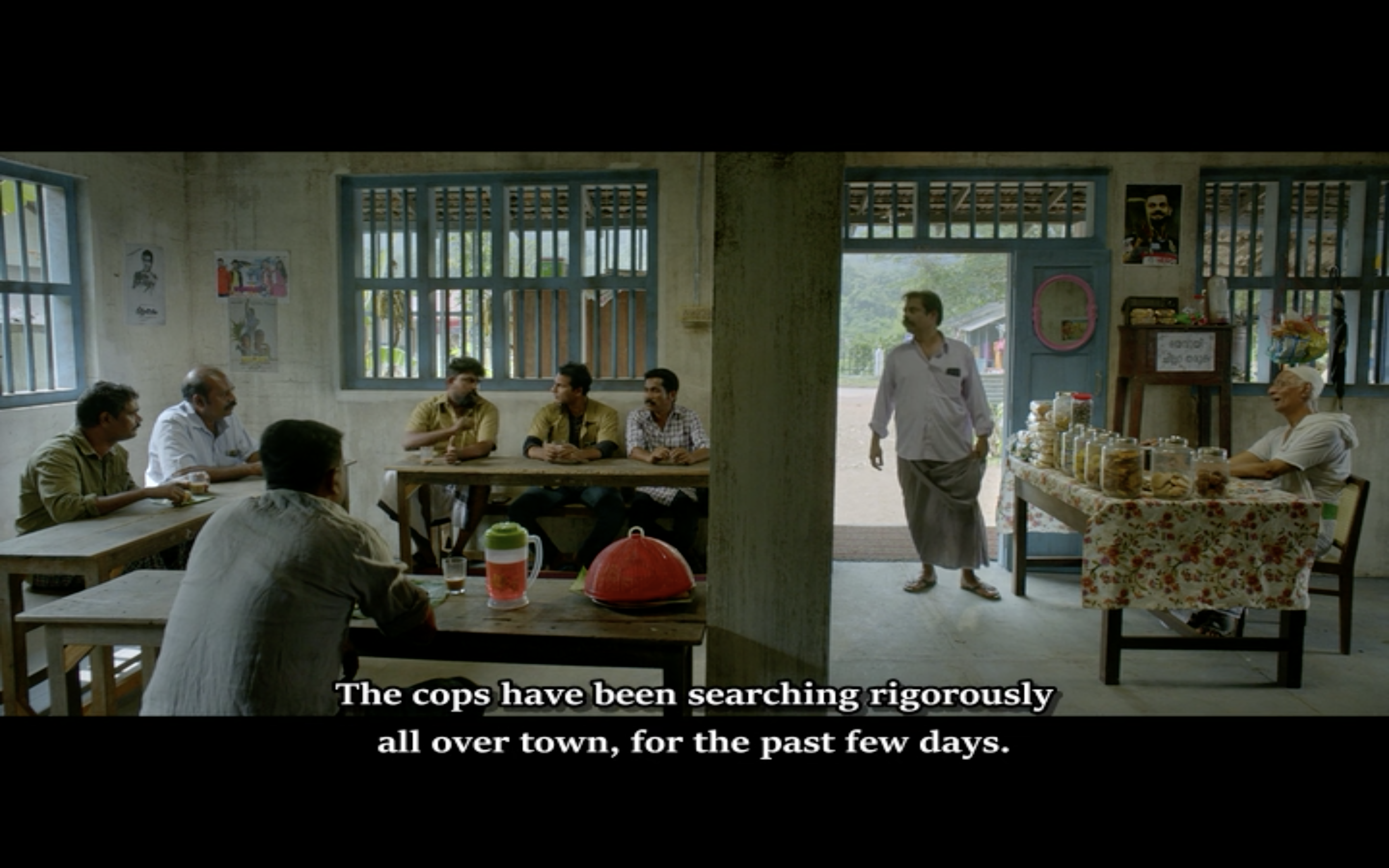
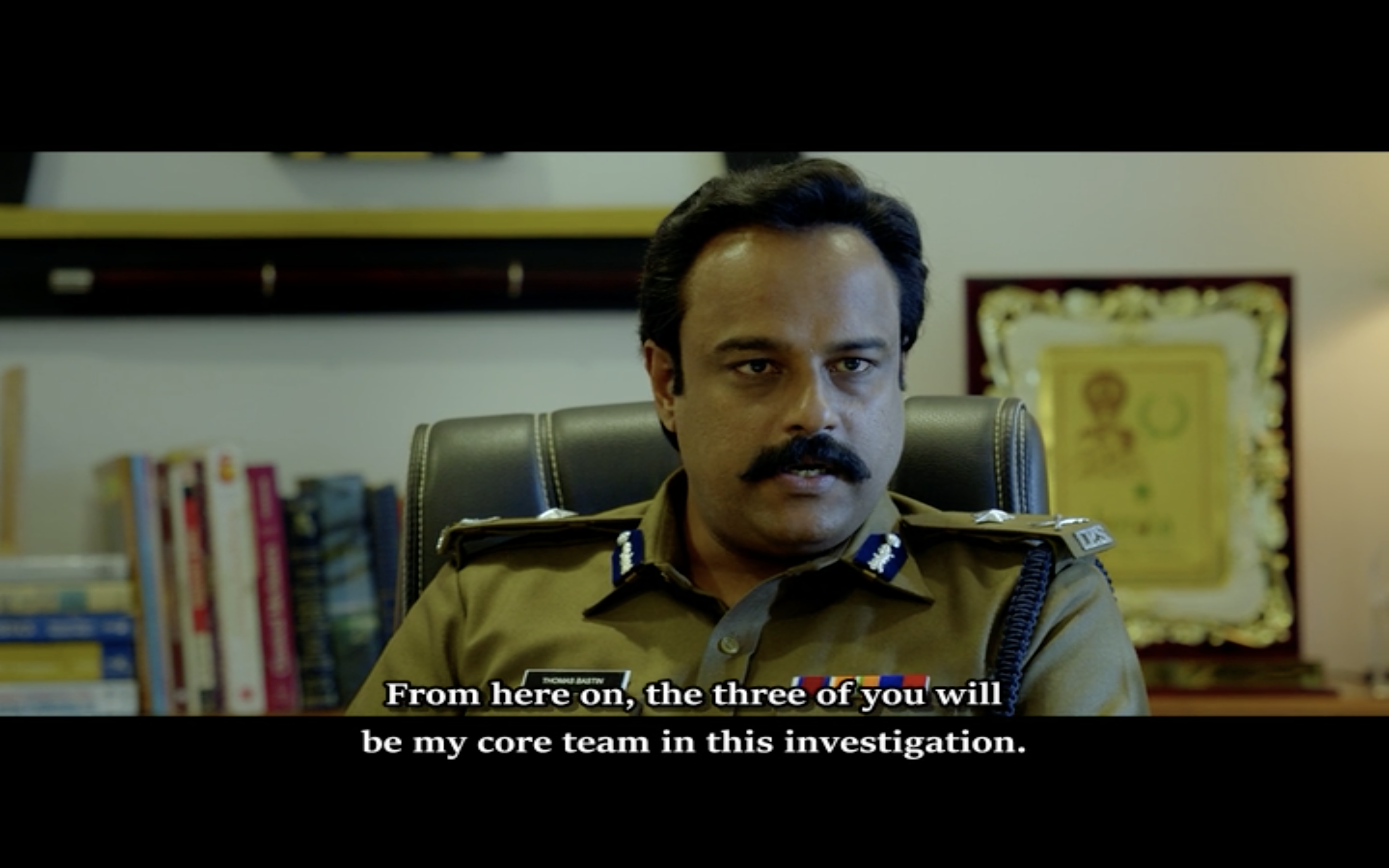
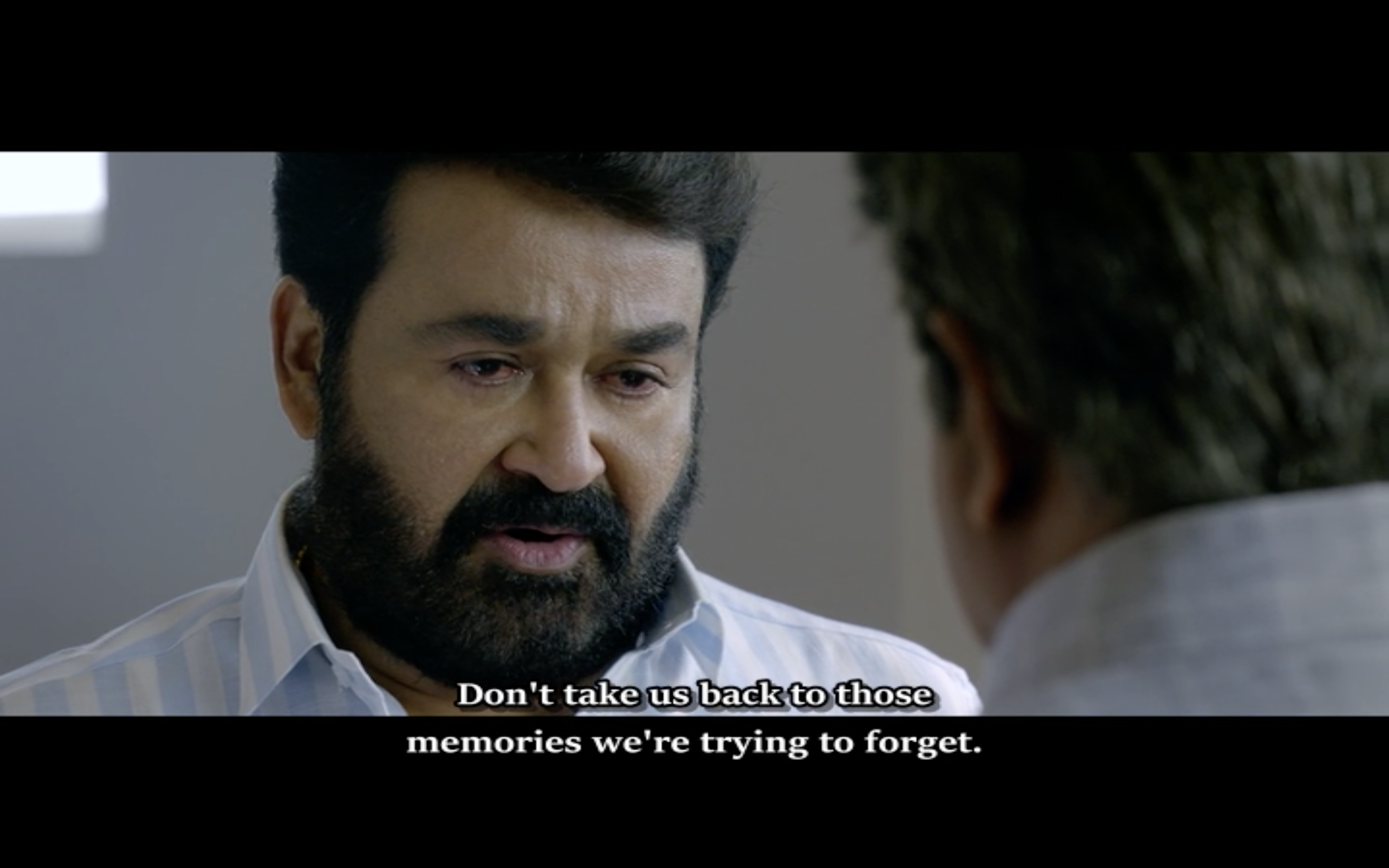

What works well with this sequel is that it fits seamlessly into the narrative from the first film. Neighbours and friends who were initially backing Georgekutty and his family after the brutal interrogation of Anju and Anu are now sure that the family is guilty, and that Varun was innocent. In the local café, although owner Sulaiman (Kozhikode Narayanan Nair) is convinced of his innocence, the local auto drivers discuss rumours of murder openly and are convinced that Georgekutty is guilty. While Georgekutty’s success as a businessman seems to be behind some of their enmity, for many it simply appears that there is no other explanation for Varun’s disappearance, so the family must be guilty.
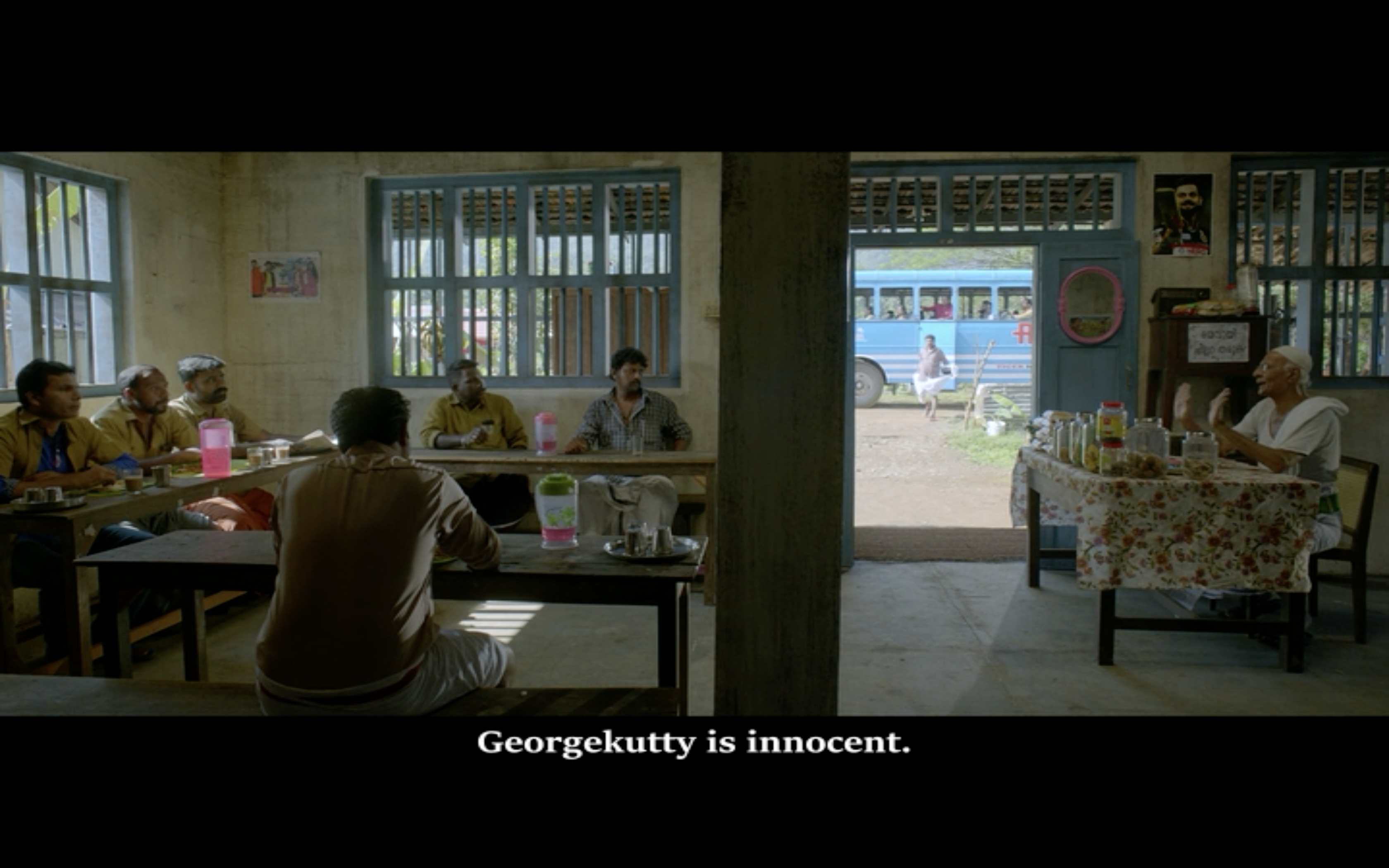
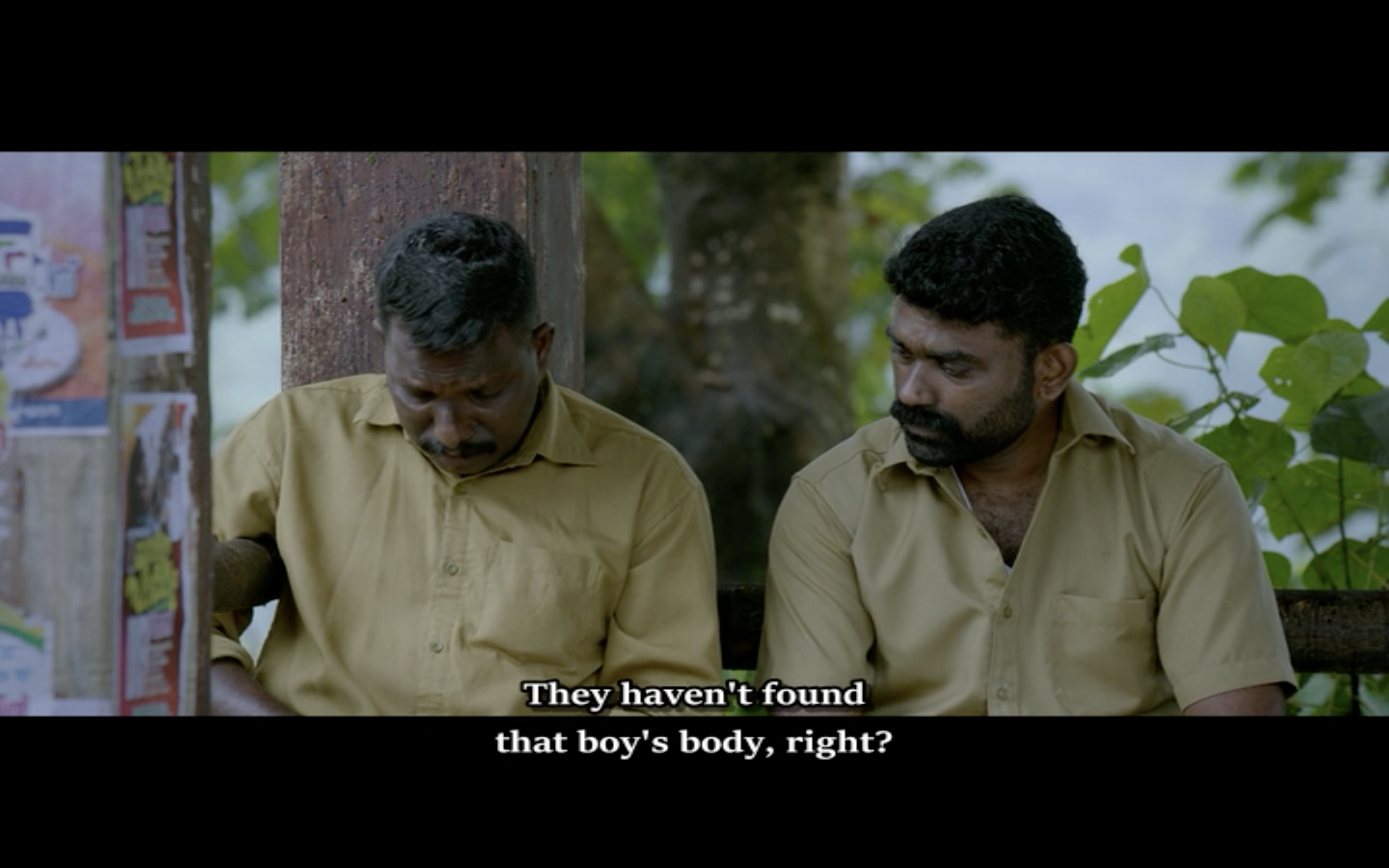
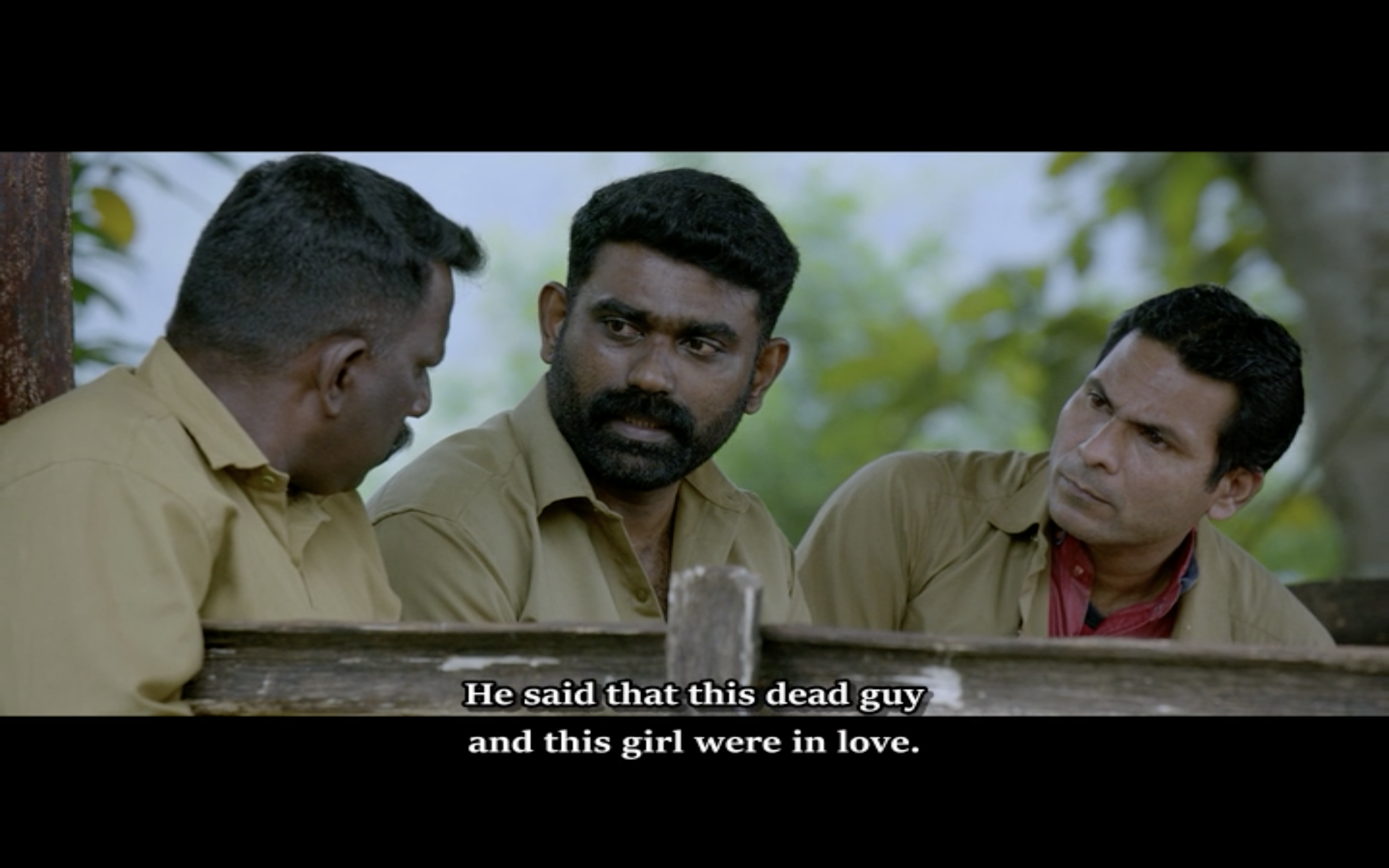
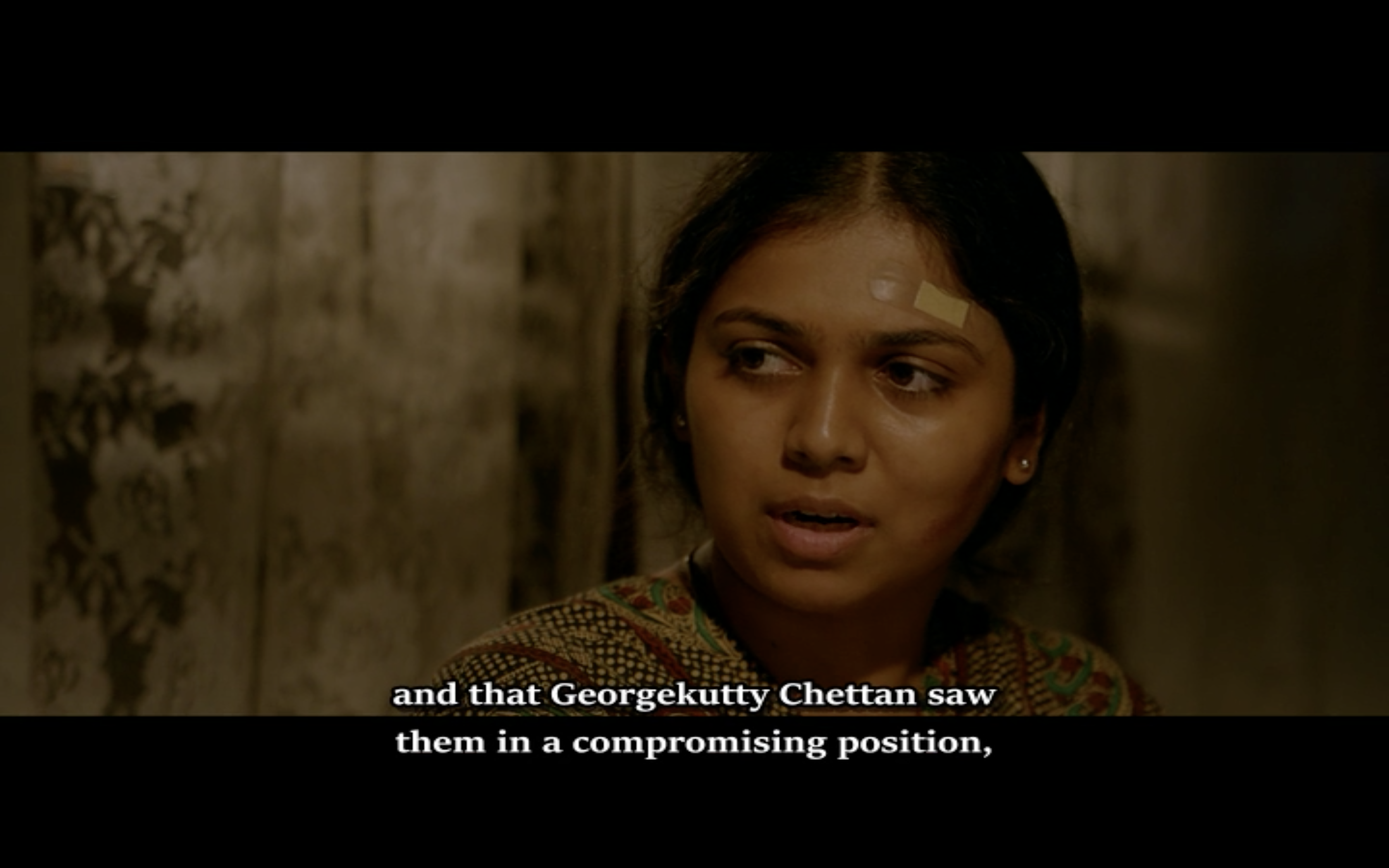
The story develops slowly, with most of the focus on the fear and guilt suffered by Rani and Anju. Despite no guilty verdict ever having been reached, the family is punished every day for Varun’s disappearance. Anju’s inability to cope with the outside world, Rani’s continuing fear and even Georgekutty’s paranoia have trapped the family in a cycle of anxiety and uncertainty which seems more profound than the distress suffered by Geetha (Asha Sarath) and Prabhakar. In contrast, the police investigation this time seems more targeted and less emotional, and although IGP Bastin is a friend of Geetha he brings a methodical and reasoned approach to the inquiry. As the tension mounts, Georgekutty has to defend his family once more as the evidence piles up against them.



Mohanlal is the standout performer here with the entire film hinging on his ability to deceive everyone and come up with a plan time and time again. He’s calm with the family, but Mohanlal ensures that his eyes show just how much stress Georgekutty is suffering and at times how trapped he feels. It’s a well nuanced performance that brings together bravado, intelligence and fear as the key elements defining Gerogekutty’s continued attempts to deceive everyone, including his own family. While the narrative may be of a man driven to extremes to defend his family, there also appears to be an underlying satisfaction with being able to outwit the rest of the community. The complex characterisation of Georgekutty is perfect, and Mohanlal pulls it off effortlessly in every scene. Meena too is excellent and shows her fear, anxiety and confusion with her hunched shoulders and dropped eyes as well as with her dialogue and expressions. I loved how well her relationship is developed with her next-door neighbour Saritha (Anjali Nair), particularly in how she stands up to Saritha’s abusive husband Sabu (Sumesh Chandran). I enjoyed the contrast between how she can stand up for Saritha but seems unable to show the same courage in her own life, presumably because the years of uncertainty are weighing her down.
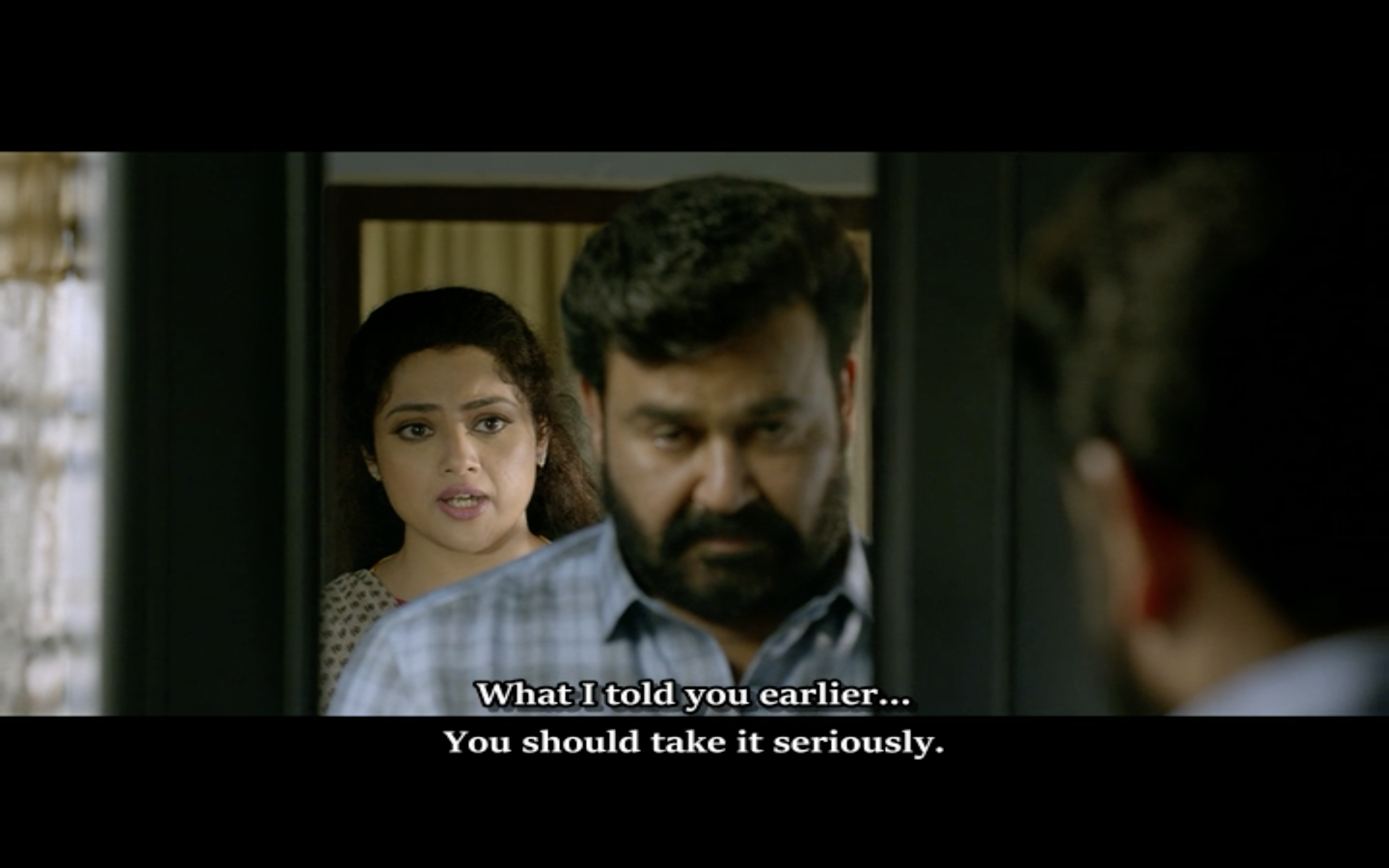
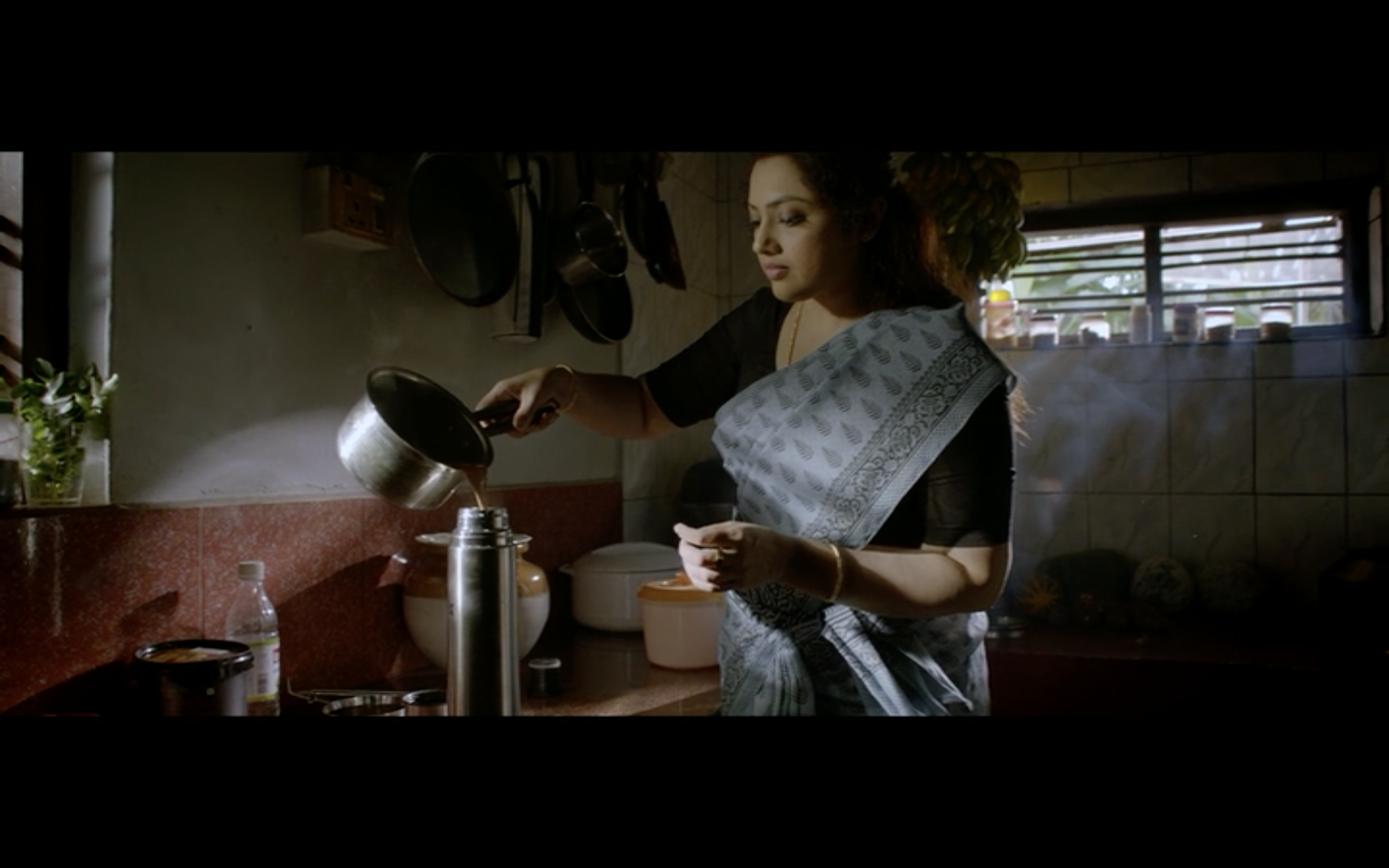


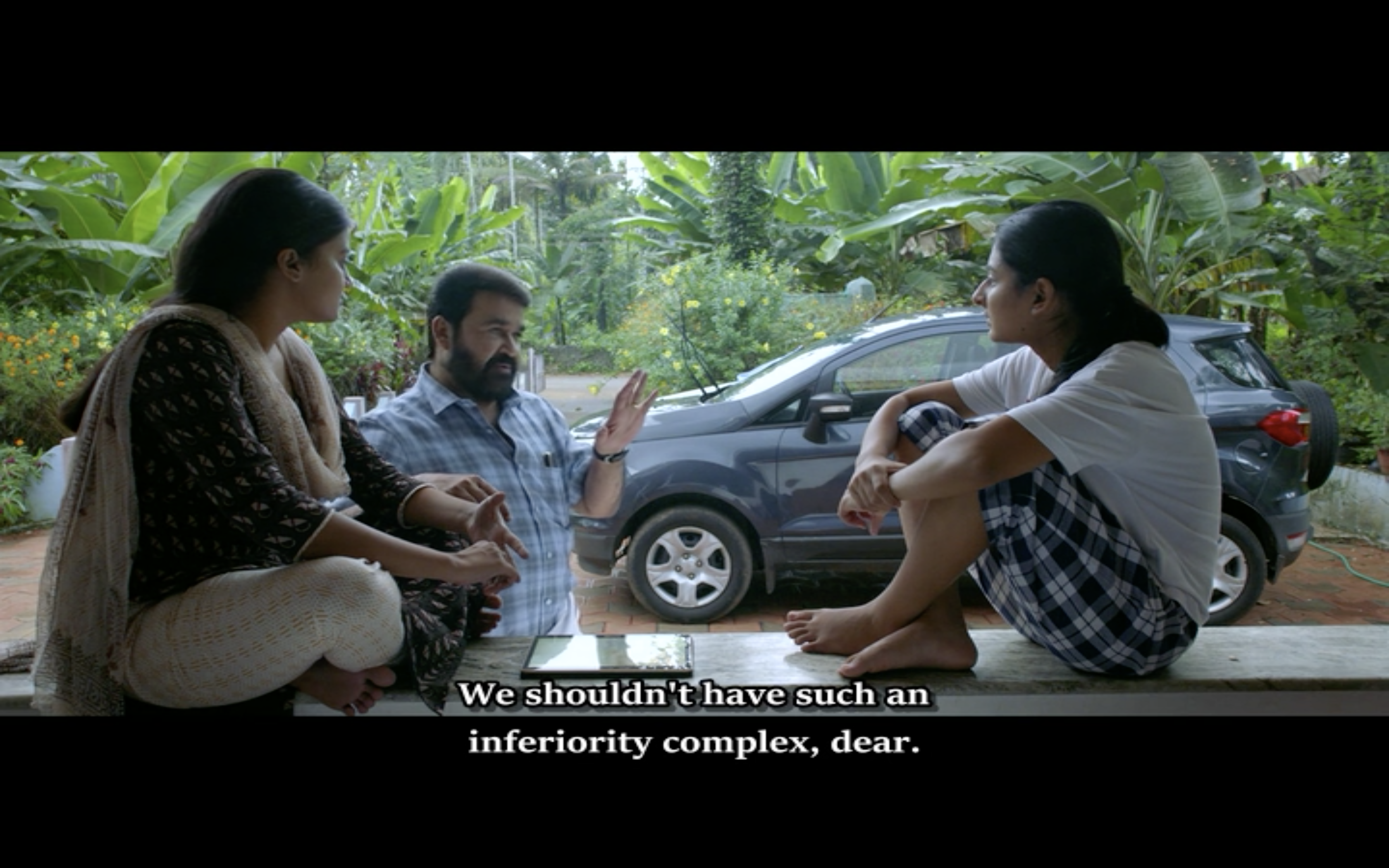
The slow build-up has a terrific pay off and the climax is as convoluted as any aficionado of detective fiction could want. Even if the events seem almost too impossible, there is still the slight chance that they could indeed have occurred. This is a film that cleverly tells a story but which also manages to explore emotions and delve into the consequences of getting away with murder. Well worth the 8 year wait, don’t miss this chance to catch up with Georgekutty and his family. 4 ½ stars.






























